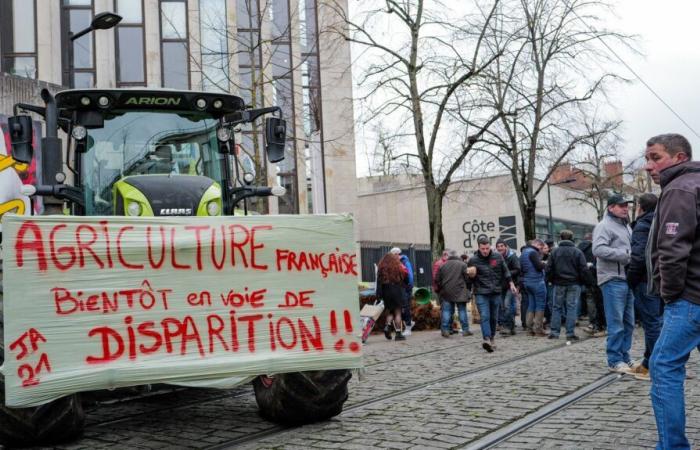
They are deputies, senators or European parliamentarians. In a column published in The WorldTuesday November 12, more than 600 French parliamentarians, from different political groups, address the President of the European Commission Ursula von der Leyen, Tuesday November 12, expressing their opposition to the draft EU-Mercosur treaty (Brazil , Argentina, Uruguay, Paraguay and Bolivia), which could be signed at the G20 on November 18 and 19.
The draft treaty, discussions of which began in 1999, intends to eliminate the majority of customs duties between the two zones by creating a space for more than 700 million consumers. If it were adopted, it would allow South American countries to sell meat, sugar, rice, honey, soybeans to Europe… On the other hand, the EU would export its cars, its machines , its pharmaceutical products… Hence the frequent nickname of agreement “meat versus cars.”
“We cannot imagine, Madam President, that you could take the initiative of a vote in the Council and in Parliament against the democratic expression of the almost unanimity of French parliamentarians”write the elected officials ranging from the PCF to the LR senators, via the PS, the Ecologists, Renaissance, Liot, MoDem, Horizons, and the UDI, in this letter at the initiative of the environmentalist senator Yannick Jadot. The LR, LFI and RN deputies did not sign.
“We also cannot conceive of the Commission and the Council siding with the opposition of France, the great founding country of the Union”they add. For the signatories, “France set three conditions for signing the agreement, namely : not increase imported deforestation in the European Union, bring the agreement into compliance with the Paris climate agreement and introduce mirror measures in health and environmental matters. Obviously, these conditions are not satisfied..
They also mention a “ditch” in environmental, health and animal welfare standards between the Mersocur countries and Europe. He “presents a serious health risk for European consumers” et “constitutes unfair competition for our agricultural producers”.





